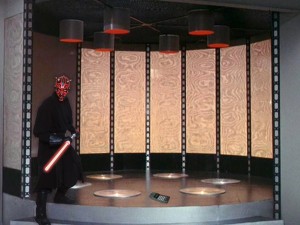Technological Stuff You Think Should Work But Doesn’t
 By most standards today, modern technology would seem like magic to the uninitiated. Having been born into the world of computers, most of us take technology for granted without considering how it works; it just does. Technology makes our daily lives more or less complicated depending upon your perspective. Of course, when technology doesn’t work, we tend to notice right away, especially in cases where it seems obvious it should work, but just doesn’t. This month we’re taking a look at a few technologies that seems obvious, but don’t work the way you think (or at all).
By most standards today, modern technology would seem like magic to the uninitiated. Having been born into the world of computers, most of us take technology for granted without considering how it works; it just does. Technology makes our daily lives more or less complicated depending upon your perspective. Of course, when technology doesn’t work, we tend to notice right away, especially in cases where it seems obvious it should work, but just doesn’t. This month we’re taking a look at a few technologies that seems obvious, but don’t work the way you think (or at all).
(1) Why doesn’t my cell phone work very well or at all on an airplane?
If we think of the typical cruising altitude of a 747 as being between 35,000 and 40,000 feet, you might expect your cell service to work spectacularly. After all, your phone should be able to see every cell tower around.
However, the high frequency signal from a cell phone is considered a groundwave based frequency, meaning the signal travels in a path relative to the ground as it is emitted from the cell tower. Any signals from the cell towers that reach your 747 are just some signal scattering and don’t maintain a solid connection. You might note, if you’re a true rebel and turn your phone on before you land, that your cell phone will start to get a better signal as you descend in preparation for the landing.
While satellite technology and lower frequency radio signals (such as those in the AM band) allow us to communicate wirelessly and globally, cell phones are limited to on-ground, line-of-site communications.
(2) Why doesn’t my 50 megapixel camera take better photos than my cousin’s 10 megapixel camera?
Sharper pictures require a better camera sensor as well as a reasonable pixel count. More pixels aren’t going to do you any good if your camera’s sensor is not very high quality. In fact, the higher pixels counts that are so sharply branded all over your phone or camera are more of a marketing device than anything else.
(3) Why don’t my super expensive Monster HDMI cables make any discernible difference in the picture quality versus my buddy’s $3 cables from Amazon?
Signals traveling over an HDMI cable are digital signals. This mean you either get the picture, or your don’t. There is no in-between fuzziness like there is in the world of analog signals. You may have seen digital distortion before: your picture breaks up into a bunch of meaningless squares, and the audio makes a noise like you just stepped on your neighbor’s cat. Go for the cheaper cables, unless it’s a long cable. Signals traveling over a long distance, whether analog or digital, can be impeded by the resistance found in lower quality cables.
(4) With all of the advances in quantum physics, why don’t I have my own personal teleportation device?
Think about trying to scan, record, and accurately transmit the 10^45 bits of data that make up a person to a different location. Then, you have to re-assemble that data accurately, and you only get one chance. Given the currently quality of some of the scanned and faxed documents I’ve seen lately, I don’t hesitate to say “You go first.”
(5) Seriously though, lightsabers? Why not?
Although you may have been fooled by your neighbor’s kid carrying around that 3-foot glowing flashlight last Halloween, a real lightsaber would consume so much energy that it would melt itself and it’s wielder. This fact doesn’t even take into account how you stop a light beam a couple feet from it’s source, or how you’d ‘solidify’ a beam of light so you get that really cool noise when two lightsabers connect.
(6) Why doesn’t my microwave cook some things very well?
Microwaves work by exciting the molecules of sugar, fat, and water in your food, which in turn generates heat and cooks your meal. Some types of food have more or less of these ingredients, and respond thusly when cooked in the microwave. With that in mind, we caution against cooking any number of items in the microwave which could have the propensity to explode: eggs, fruits, and that uncovered cup of marinara sauce, among other things.
(7) Why does my computer seem to get slower and slower the longer I have it?
Most of us continue to install programs and add features to our computers without thinking too much about how everything is going to work. Over time, these additions tend to take the fun out of owning a computer and lead to you associating other words with your computer, like ‘frustration’ or ‘failure’. The problem lies with the additional resources these programs consume. Some of them insert themselves into your start menu (so they get turned on when your computer boots up), and all of them will cause fragmentation of your hard drive, a process which makes your programs open and respond much more slowly. It boils down to the majority of us being considered digital hoarders, as this type of hoarding doesn’t take up any more space than the platters on your hard drive, and you don’t get asked to be on a tv show about your hoarding issues.
We hope you enjoyed this month’s version of tech tips! While not everything was serious in nature, it’s all true. See you next month.

Comments are closed.